Nigel Jarrett reviews Mid Wales Opera’s production of the Tchaikovsky masterpiece, Eugene Onegin, a rendition which employs an abstract set which does not remove from the grandeur of the production.
Let’s face it: the exigencies involved in touring opera on a budget can shrink its setting to the likes of an oppressive sitting-room or one with a Freudian couch. Drama normally played out against a broader social backdrop and involving essential but anonymous others – i.e., the crowd – gives way to the examination of character and motive at close quarters. So ways have to be devised in these chamber-like conditions of suggesting that the outside world and its importance as context is there but not in great numbers or in pictorial detail. This can be achieved, for example, by formalising the set; it’s even been known for principals to join the chorus off stage, or when they are not required to be themselves on it.
In one sense, all operas – even the populous ones – can be reduced to interaction forensically observed. To paraphrase Eugene Onegin’s composer, Tchaikovsky, composers may be glad to be rid for once of dancing serfs, bystanders, slaves, and convicts languishing in houses of the dead. It’s often a sacrifice of grandeur and it’s a loss, but not a great one. The decimation or more of the orchestra would be a separate issue if the miniaturisation on the stage above it were not complementary. Therein can lie the most regrettable compromise: melodrama and anything vocally overblown can be difficult to de-fuse or deflate.
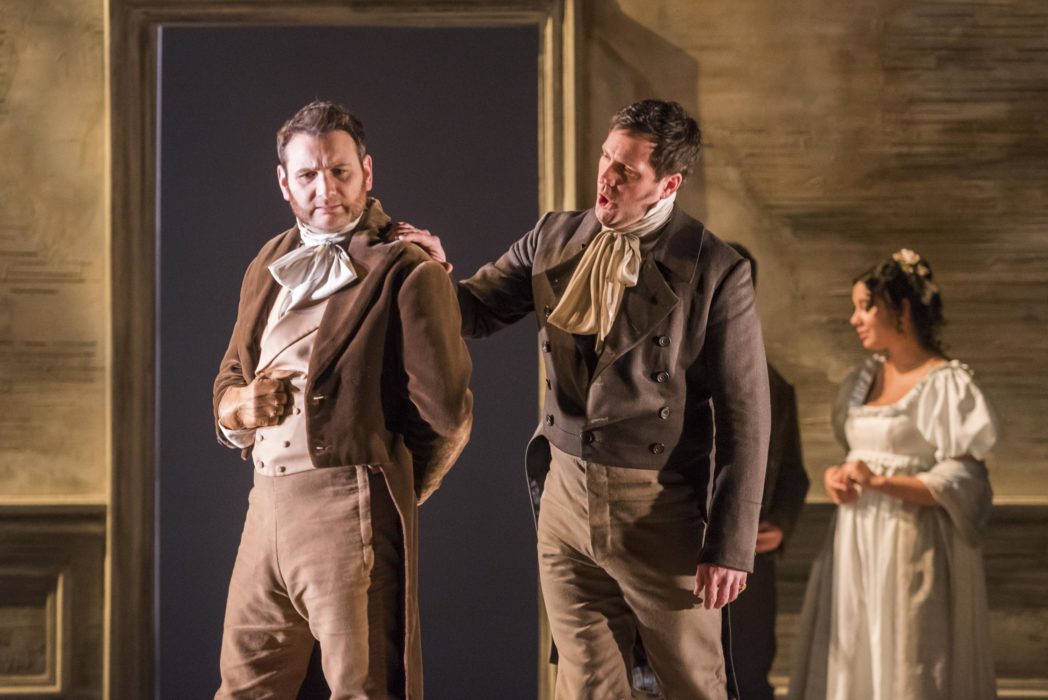
What does this mean in terms of performance, beyond its familiarity to directors as yet another rehearsal of the struggles they face each time a company packs itself into a van and hits the road? Well, very little in Tchaikovsky’s Eugene Onegin, yet to be presented as an example of a scenario that led to the Bolshevik Revolution (I sit to be corrected) and a paradigm of its composer’s gratitude to free himself of superfluity. Its peasants are not revolting, and in Mid Wales Opera’s stylish production they are more numerous than one might expect. This is because the cast includes ensemble players (Felicity Buckland, Chanáe Curtis, Joseph Doody, Jana Holesworth) leading a community chorus drawn from Aberystwyth, Newtown and Bangor, the whole team playing the aforesaid peasants, partygoers, and the guests at the ball later on.
The set is semi-abstract, most of the atmosphere inside and out created sparely by the lighting of Dan Saggars, though the conception is only a smidgen away from paucity. The chandeliers at the act three society ball simply remind us of what’s had to be left out. It’s so difficult to strike a balance. Visually, scaled-down opera is the art of the credible. Conductor Jonathan Lyness has produced a neat reduction of the score for touring purposes, with only a few repeats cut, and Ensemble Cymru steam through it with sense and purpose. Any yearning to be carried away by the sound of a full orchestra has to be suppressed as part of the bargain.
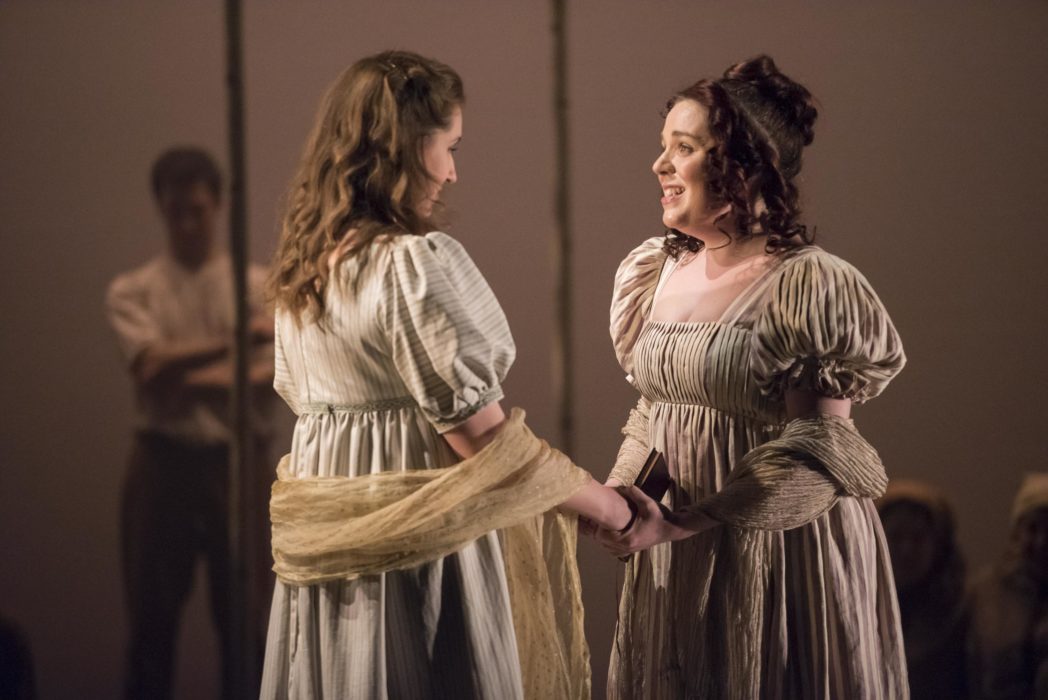
The opera Eugene Onegin, like Pushkin’s eponymous verse-novel on which it’s based, is constructed as a series of lyric episodes across which the plot is laid like a piece of string. With every production, one’s attitude to the principals seems to change, an illustration, possibly intentional on the part of writer and composer, of the work’s ever-shifting focus.
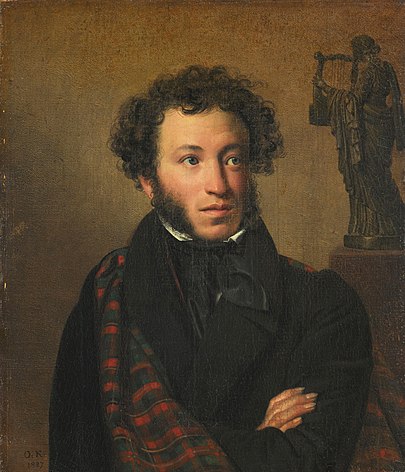
Here, George von Bergen’s Onegin is a stolid cove whose plight almost has one reaching for the Kleenex, but with Elizabeth Karani’s somewhat timid and fervidly projected Tatyana it stays in its box. Her famous letter scene, though, is taut and gripping. Robyn Lyn Evans’s Lensky, again, is almost to be pitied, his great aria before the duel with Onegin an effusion of irresistible and genuine anxiety and very much a higher vocal summit in this production than it is in others. And who couldn’t sympathise with Onegin as he confronts the abyss at the opera’s close, when on other stages he might be seen as the cold fish deserving to remain on the slab?
Almost every character in Eugene Onegin has something to say, even those standing aloof from self-laceration. Prince Gremin, for example, sung from the depths with gravity if on this occasion with a few lapses of intonation, by Sion Goronwy, says a lot that is salutary, if moralising, to the soon-to-be-distraught Onegin. Then there is Maria Jagusz’s solicitous Filipyevna, maybe vocally under-stretched considering the importance of what she has to impart, and Ailsa Mainwaring’s Olga, a vivacious portrayal whose liveliness barely conceals a sense of mischief – or innocence, depending on how one sees the accent wavering. It is perceptive of director Richard Studer to bring out these traits, or to give what’s already there firmer emphasis.
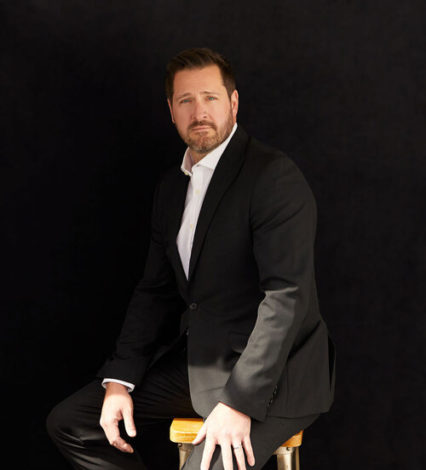
Jonathan Cooke’s M. Triquet, the effete foreigner whose artificiality is a foil to all that’s feverishly romantic about the goings-on, rose to his occasion on a chair, as is customary. Stephanie Windsor-Lewis’s Madam Larina is a widow of pride but no prejudice when it comes to the love lives of her daughters. The military are depicted by Matthew Buswell and Nicholas Morton. All in all the cast is a model of musical balance. Add to it the stook-gathering, all-dancing peasantry (they’ve done more than gather in the corn; they’ve milled it and made a celebratory loaf) and the guests at the ball, and any reduction is confined to the orchestra and the set.
The heart-thumping vocal peaks don’t have to be toned down that much; not that David Lloyd Jones’s English version of the libretto encourages anyone to over-project. The result is a production that suits the venue and thus meets the requirements of a company with limited baggage. What it cannot subsume beneath its limitations is illustrate changes of social milieu except with costumes: the Larin estate with which the opera opens is half a world away from Gremin’s pile in the city and the transition demands more than a touring company can suggest with only chandeliers, two rows of Regency-style chairs, and a backdrop reminiscent of the Edwardian Baroque. But a story of love first unrequited then sought in late – too late – desperation, with a sidebar of jealous rage precipitating death, contrition and suicidal despair, doesn’t allow the mind to worry unduly about when and where it’s all taking place.
Director and Designer: Richard Studer
Conductor: Jonathan Lyness
Lighting: Dan Saggars
Orchestra: Ensemble Cymru
The Onegin tour reaches Ffwrnes, Llanelli, on March 29; the Torch Theatre, Milford Haven, on April 4; and The Courtyard, Hereford, on April 10
Header photo of Elizabeth Karani (Tatyana) by Matthew Williams-Ellis
To find out about upcoming productions from Mid Wales Opera visit their website.
Nigel Jarrett is a winner of the Rhys Davies prize for short fiction and, in 2016, the inaugural Templar Shorts award. He’s a former daily-newspaperman and a regular contributor to the Wales Arts Review, Jazz Journal and Acumen poetry magazine, among others. He is also a poet and novelist. His latest story collection, Who Killed Emil Kreisler?, was published in 2016, as was his first novel, Slowly Burning. This year sees the publication of his short fiction pamphlet, A Gloucester Trilogy.
You might also like…
Nigel Jarrett reviews Mid Wales Opera’s production of Puccini’s masterpiece, Tosca, at the Riverfront, Newport.
Mid Wales Opera


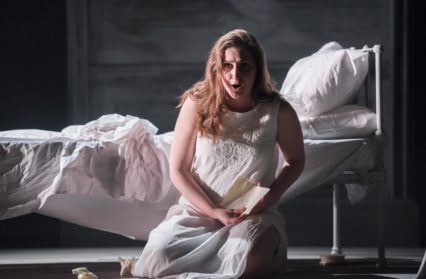
 Enjoyed this article? Support our writers directly by buying them a coffee and clicking this link.
Enjoyed this article? Support our writers directly by buying them a coffee and clicking this link.








